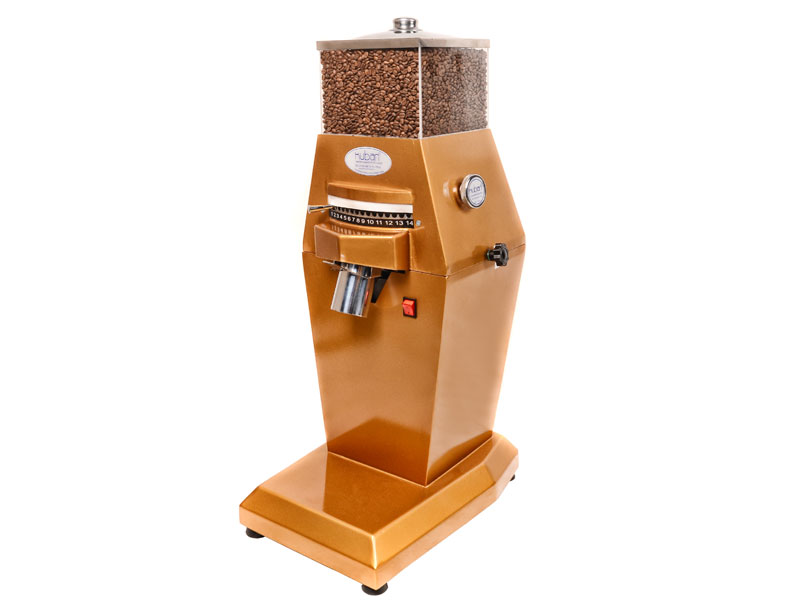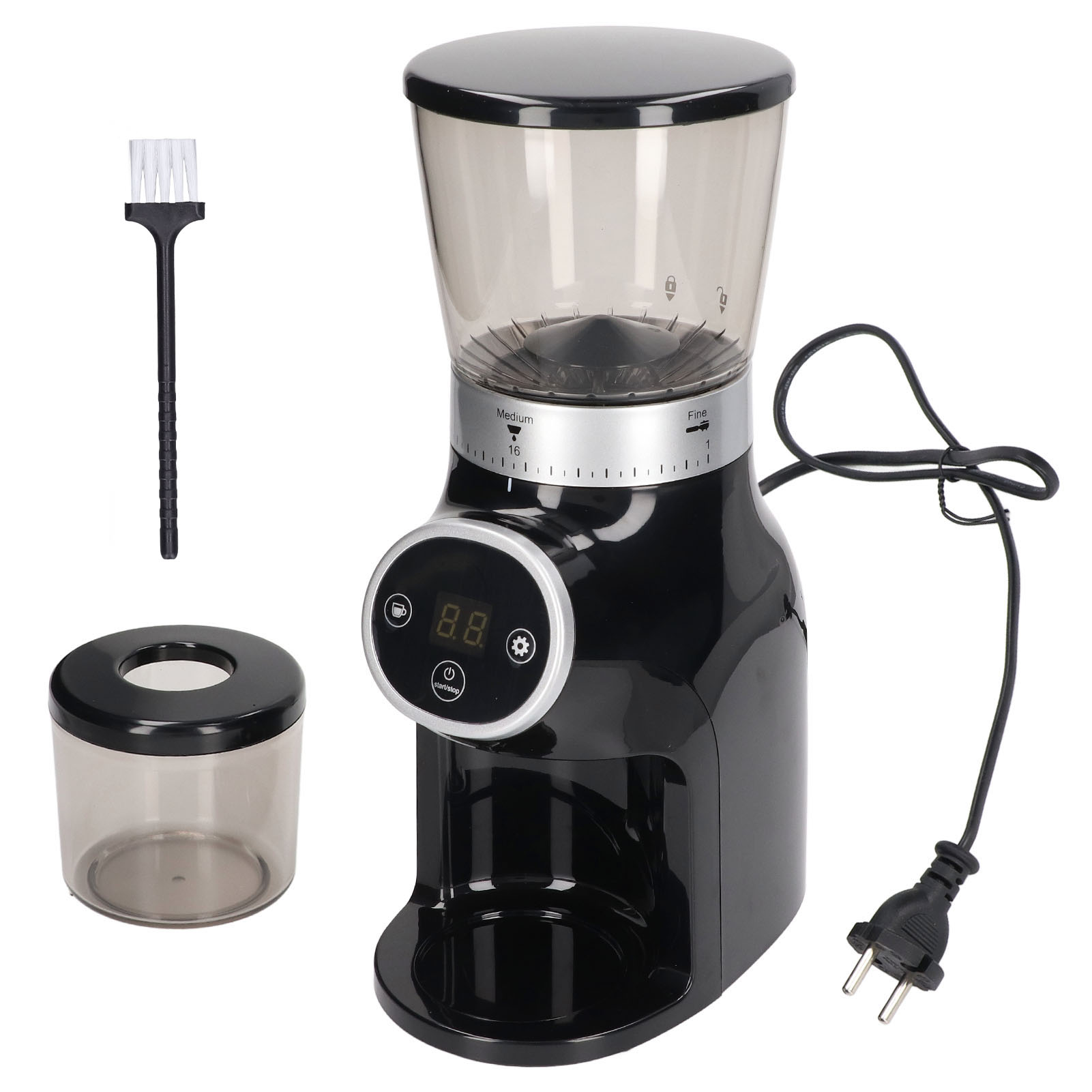Industrial Coffee Grinder Care Tips for Long-Lasting Performance
Industrial Coffee Grinder Care Tips for Long-Lasting Performance
Blog Article
Just How to Select the Perfect Industrial Coffee Mill for Your Company
Choosing the perfect industrial coffee grinder for your service is a diverse choice that requires careful factor to consider of a number of crucial variables. It is important to examine your certain grinding demands, consisting of the volume of coffee refined and the preferred grind uniformity, as these aspects straight influence flavor and consumer complete satisfaction. In addition, comprehending the various kinds of grinders available can dramatically influence your operational efficiency. As you navigate these factors to consider, one need to also evaluate the effects of spending plan and upkeep. What other aspects could make or damage your choice?
Assess Your Grinding Needs
When picking a commercial coffee mill, one must first examine their grinding needs to ensure optimum performance and uniformity. This initial analysis includes understanding the volume of coffee to be refined daily, as well as the wanted work size for numerous brewing approaches. A high-capacity grinder might be essential for services offering huge quantities of coffee, while smaller sized procedures might discover a much more portable design adequate.
In addition, it is vital to think about the sorts of coffee beans being utilized, as various beans might require specific grinding strategies to achieve the ideal taste account. As an example, oily beans may require a mill made to manage such features without overheating or clumping.
An additional vital element is the called for grind uniformity. Specialized coffee services often require specific work dimensions to boost extraction and taste, making it crucial to select a grinder that can deliver consistent results. Evaluating the available space and electric demands will certainly help in picking a grinder that fits seamlessly right into your operational process. By thoroughly examining these factors, organizations can make informed choices that line up with their coffee grinding demands, ultimately bring about a superior item and completely satisfied customers.
Understand Grinder Types
Comprehending the different kinds of industrial coffee grinders is important for making a notified option that fulfills specific operational demands. There are largely 2 groups of mills: blade mills and burr grinders.
Blade mills use rotating blades to slice the coffee beans, leading to an irregular grind size - Industrial Coffee Grinder. While they may be much more economical, they are commonly not ideal for industrial applications where accuracy is necessary
On the various other hand, burr mills supply a much more uniform grind by crushing the beans between two surfaces. They can be more classified right into level burr and conical burr mills. Flat burr mills use a regular grind size and are generally preferred for coffee prep work, while conical burr grinders are functional and can deal with a series of brew methods, from coffee to French press.
When choosing a grinder, think about the specific demands of your business, consisting of preferred work uniformity, production volume, and the kinds of coffee beverages you intend to supply - Industrial Coffee Grinder. Each grinder type has its benefits and restrictions, so recognizing these subtleties allows notified decision-making that aligns with operational goals
Evaluate Grind Size Consistency
Achieving grind size uniformity is essential for generating premium coffee, as variants in particle size can dramatically impact removal and taste. When selecting a commercial coffee grinder, it is vital to evaluate exactly how well the maker preserves harmony in grind size across different batches. that site Inconsistent grind dimensions can cause uneven removal, causing a cup that might taste weak or extremely bitter.
To evaluate work size consistency, take into consideration grinders with functions such as flexible grind settings and top quality burrs. Burr mills, in specific, excel in creating consistent fragment sizes contrasted to blade grinders. The material and form of the burrs play a vital function, with stainless-steel and ceramic alternatives offering toughness and precision.

Consider Manufacturing Capacity
In the hectic globe of coffee manufacturing, article taking into consideration manufacturing ability is paramount for companies aiming to satisfy demand without compromising high quality. The manufacturing ability of a commercial coffee mill straight influences a business's ability to satisfy orders efficiently, handle stock, and react to changing market patterns.
When assessing manufacturing capability, it is important to review the mill's result rate, generally measured in pounds per hour. This dimension needs to line up with your service's forecasted sales volume and development targets. A coffee shop with a high turnover may call for a grinder that can refine a number of hundred pounds daily, while a smaller sized procedure might be adequate with a reduced capacity version.
Furthermore, consider the sort of coffee being processed. Various beans and blends may impact grinding rate and efficiency, demanding a grinder with the ability of handling varied production demands. It's also worth considering the mill's capability to keep constant top quality under high outcome problems, as any type of fluctuations can influence the end product.
Ultimately, choosing a grinder that matches your service's manufacturing capability will certainly ensure you stay responsive and affordable to client assumptions.

Spending Plan and Maintenance Elements
When evaluating the ideal industrial coffee budget plan, upkeep and grinder elements play a substantial role in the try this web-site general decision-making procedure. A first financial investment in a top notch grinder can generate long-term benefits, however it's vital to develop a clear spending plan that aligns with your company's operational requirements. Take into consideration both the acquisition rate and potential operational expenses, such as energy usage and replacement parts.
Industrial coffee grinders require normal maintenance to make certain ideal performance and longevity. Review the supplier's suggestions for maintenance, consisting of cleaning routines and parts substitute, as these will certainly impact lasting operational costs.

Purchasing a grinder that is durable yet simple to maintain can save money over time. While lower-priced alternatives may be alluring, they may sustain higher upkeep expenses and reduced performance. Ultimately, stabilizing initial expenses with lasting maintenance and functional performance will lead you to the finest selection for your company's coffee grinding demands.
Verdict
Picking the suitable commercial coffee grinder requires a comprehensive analysis of grinding needs, mill kinds, grind dimension uniformity, production capability, and financial considerations. By prioritizing these aspects, businesses can guarantee the procurement of a reputable, reliable grinder that meets certain functional needs. A well-chosen grinder not only boosts the top quality of the coffee produced however likewise adds to the total success and profitability of the business. Long-lasting efficiency and upkeep convenience should remain central to the decision-making process.
Specialty coffee businesses frequently demand accurate grind sizes to boost removal and taste, making it crucial to select a grinder that can deliver consistent outcomes. Apartment burr mills use a constant grind size and are typically preferred for coffee prep work, while cone-shaped burr grinders are versatile and can take care of an array of brew methods, from coffee to French press.
When selecting a commercial coffee mill, it is important to assess how well the equipment preserves uniformity in work size across various batches. Burr grinders, in certain, stand out in producing consistent bit dimensions compared to blade mills.Picking the optimal industrial coffee mill requires a complete examination of grinding requirements, mill kinds, grind size uniformity, manufacturing capacity, and financial factors to consider.
Report this page